.jpg)
On the morning of July 31, 2025, in Ho Chi Minh City, the Vietnam International Arbitration Centre (VIAC), in cooperation with the Ho Chi Minh City Investment and Trade Promotion Centre (ITPC), organized the Conference on “Updates on new legal regulations in the financial sector: impacts on investors”. The Conference brought together more than 200 participants, including enterprises, business associations, lawyers, and representatives of state authorities. This event served as a lead-up event to the Investment Legal Support Forum 2025 (ILS Forum 2025), which will be further carried out by VIAC and ITPC in Q4/2025.
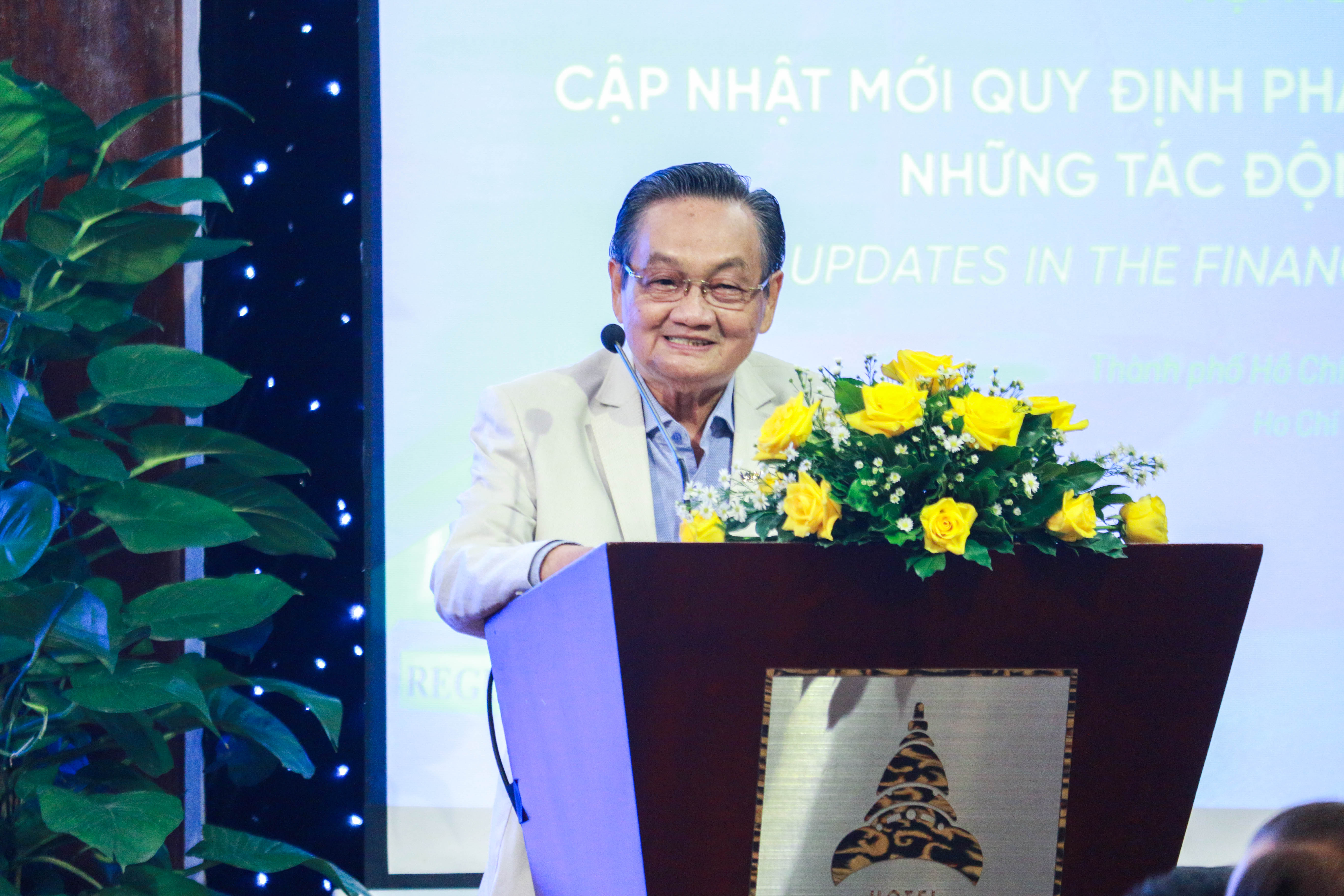 Dr. Trần Du Lịch – Vice President of the Vietnam International Arbitration Centre (VIAC)
Dr. Trần Du Lịch – Vice President of the Vietnam International Arbitration Centre (VIAC)
In the Opening Remarks, Dr. Trần Du Lịch – Vice President of the Vietnam International Arbitration Centre (VIAC) emphasized that it is currently the “golden opportunity” for Vietnam to build a self-reliant, resilient economy; and to achieve this, a solid legal framework serves as the fundamental foundation indeed. Recently, with efforts to reform policy thinking, the State has promulgated a series of new, “groundbreaking” decisions that promote a transparent, fair, and efficient economy. In light of these major changes, enterprises must exercise greater caution in their investment and business activities, proactively update themselves with essential information, and at the same time strengthen effective coordination with state agencies to ensure safe implementation.
Dr. Trần Du Lịch further noted that, alongside the revision and improvement of existing regulations, given the development of a highly open economy, several key provinces and cities are conducting studies to implement certain new investment models to adapt to the requirements of the new stage of development. Among these, the model of an International Financial Centre stands out as a strategic initiative, reflecting Vietnam’s determination to integrate more deeply into the global financial market while facilitating the attraction of high-quality investment capital flows. He stressed, besides these new opportunities, enterprises must also be well-prepared to cope with new risks that could potentially give rise to complex disputes.
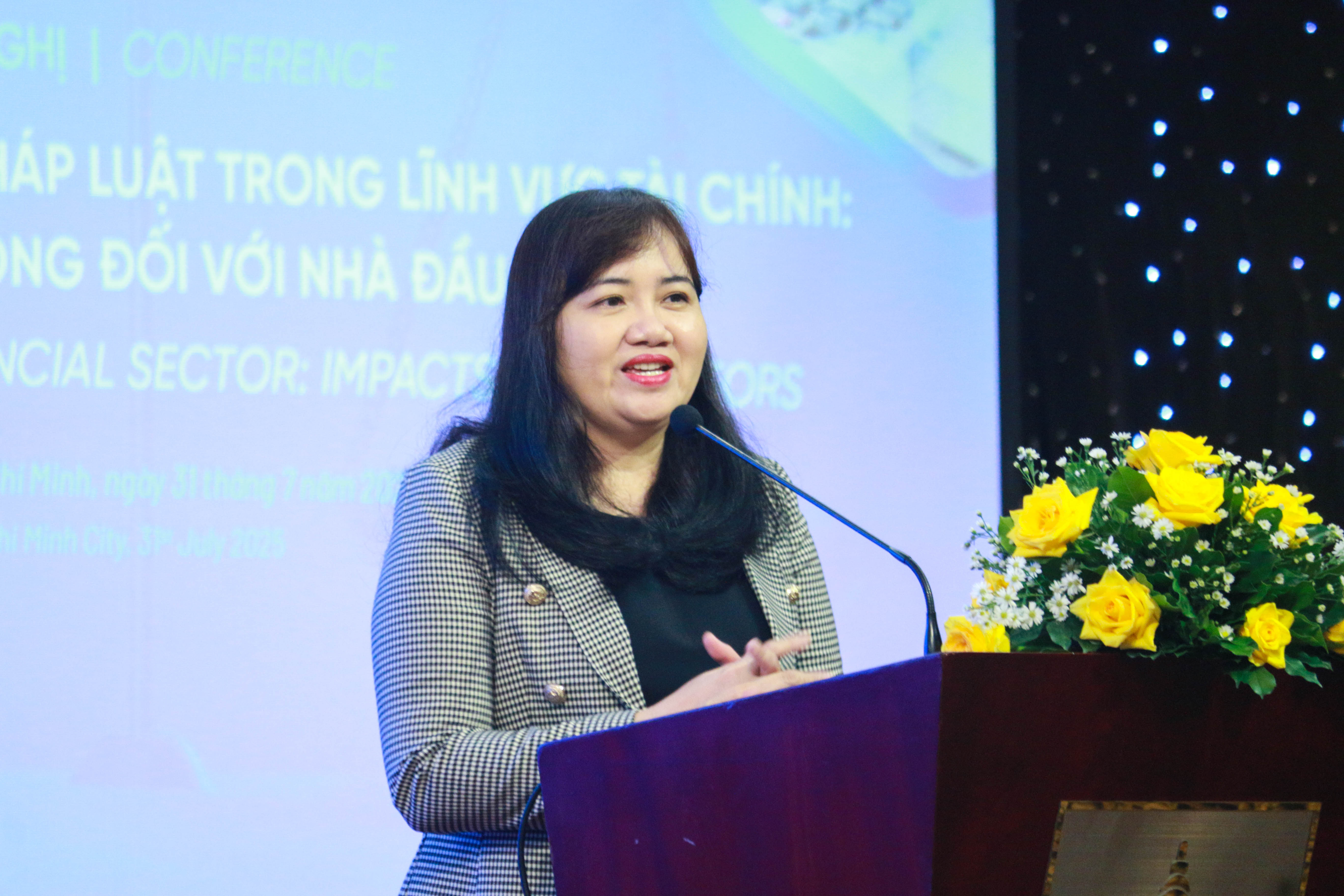 Ms. Cao Thị Phi Vân – Deputy Director of the Ho Chi Minh City Investment and Trade Promotion Centre (ITPC)
Ms. Cao Thị Phi Vân – Deputy Director of the Ho Chi Minh City Investment and Trade Promotion Centre (ITPC)Subsequently, Ms. Cao Thị Phi Vân – Deputy Director of the Ho Chi Minh City Investment and Trade Promotion Centre (ITPC) – shared the same perspective as Dr. Trần Du Lịch. Speaking at the Conference, Ms. Vân noted that, recently, the legal framework in the field of finance and taxation has undergone significant adjustments aimed at fostering a transparent business environment, promoting fair competition, and protecting investors’ rights.
She emphasized that conferences providing updates on legal regulations play an important role in disseminating new and salient policy developments, while also serving as a forum for the business community and legal experts to exchange views and clarify practical obstacles in implementation. According to Ms. Vân, only when enterprises firmly grasp the “rules of the game” and are thoroughly prepared in terms of legal compliance can they fully capitalize on development opportunities, mitigate risks, and contribute to the country’s sustainable economic transformation.
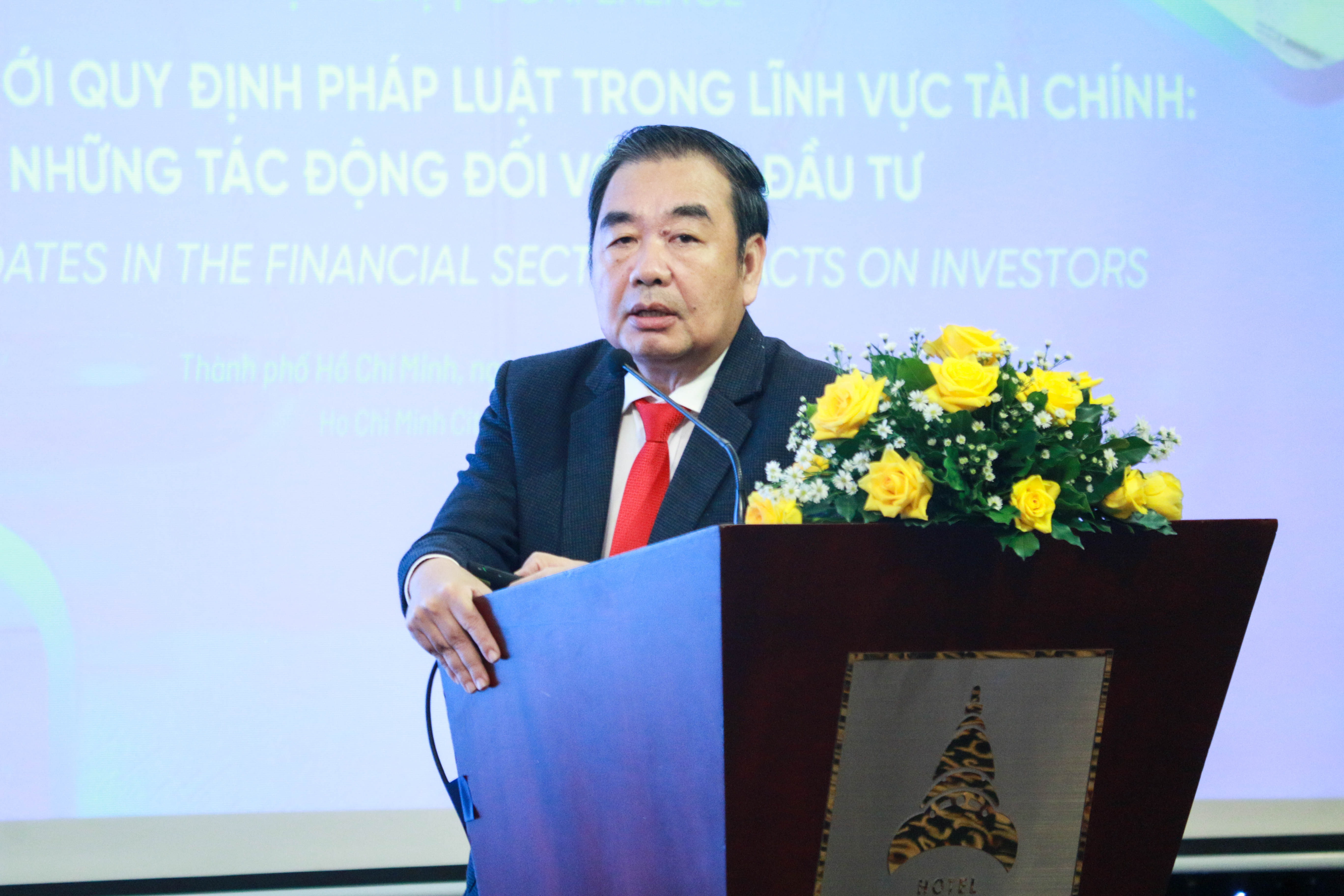 Assoc. Prof. Dr. Lê Vũ Nam – Vice Rector of the University of Economics and Law, Vietnam National University Ho Chi Minh City, Arbitrator at VIAC
Assoc. Prof. Dr. Lê Vũ Nam – Vice Rector of the University of Economics and Law, Vietnam National University Ho Chi Minh City, Arbitrator at VIACOpening the specialized session, Assoc. Prof. Dr. Lê Vũ Nam – Vice Rector of the University of Economics and Law, Vietnam National University Ho Chi Minh City, Arbitrator at VIAC – delivered a presentation on “Key amendments to the Law on Securities (as amended) and their positive impacts on the operations of Vietnam’s securities market”. Assoc. Prof. Dr. Lê Vũ Nam observed that, in order to adapt to the dynamic developments of the market, the amendments introduced under Law No. 56/2024/QH15 are regarded as a “breakthrough of breakthrough” for the financial market in general and the securities market in particular, helping to address obstacles and shortcomings encountered in the implementation of the 2019 Law on Securities. Analyzing these changes, he assessed that these new provisions will bring about significant positive shifts for the domestic securities market, while also preparing the necessary conditions for implementing the orientation of developing Ho Chi Minh City into a regional and global financial center. The new regulations concerning professional securities investors, private placements, and public offerings are expected to enhance transparency, safety, and quality in securities transactions. Consequently, securities investors will be more effectively protected, enterprises will gain greater opportunities to raise capital, and foreign direct investment (FDI) inflows will likely increase.
 Dr. Phan Hoài Nam – Chief Executive Officer of W&A Consulting & Law Firm, Arbitrator at VIAC
Dr. Phan Hoài Nam – Chief Executive Officer of W&A Consulting & Law Firm, Arbitrator at VIACSubsequently, Dr. Phan Hoài Nam – Chief Executive Officer of W&A Consulting & Law Firm, Arbitrator at VIAC – delivered a presentation on “Significant new tax policies in 2025”. Under the legal framework, from 1 July 2025, a series of new tax policies will take effect, directly impacting enterprises across multiple sectors, with varying scales of operation, both domestic and foreign. A notable highlight is the new regulation on value-added tax (VAT) deductions for non-cash payment vouchers, which is expected to provide a clearer basis for transparent tax accounting. At the same time, the provisions on VAT refunds for new or expanded investment projects are also designed to facilitate more efficient implementation of investment projects by enterprises.
With respect to corporate income tax (CIT), the new policy allows enterprises to offset profits from real estate business activities against losses from other production and business operations, thereby optimizing tax obligations and enabling greater flexibility in corporate financial strategies. In addition, Dr. Nam updated on several other significant tax policies concerning special consumption tax and taxation of business activities conducted on e-commerce platforms – a sector that is rapidly developing but also entails considerable legal risks.
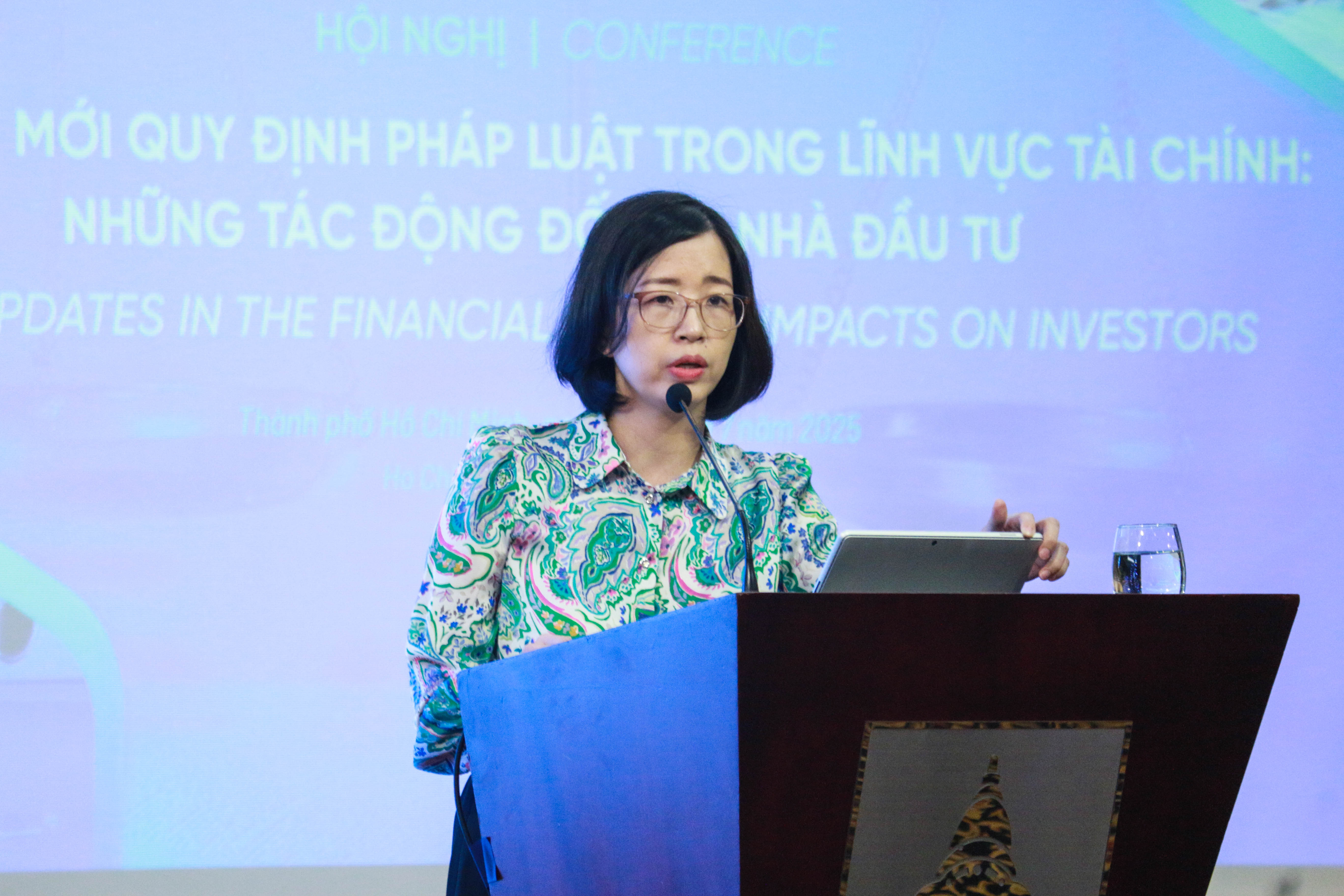 Ms. Tô Thị Kim Thoa – Head of the Division of Public-Private Partnership and Debt Management,
Ms. Tô Thị Kim Thoa – Head of the Division of Public-Private Partnership and Debt Management,Following the Conference, Ms. Tô Thị Kim Thoa – Head of the Division of Public-Private Partnership and Debt Management, Ho Chi Minh City Department of Finance – shared insights on “Ho Chi Minh City in the context of legal framework changes and the establishment of an International Financial Center”. On June 27, 2025, the National Assembly passed Resolution No. 222/2025/QH15, providing for the establishment, operation, management, supervision, and special mechanisms and policies applicable to the International Financial Centers in Ho Chi Minh City and Da Nang, with the aim of attracting investment capital and fostering drivers of economic growth. With respect to the operational principles, Ms. Thoa noted that the Resolution applies solely within the scope of the International Financial Centers, subject to specific conditions for entities to be entitled to the special mechanisms and policies. These special policies are focused on creating a favorable environment to attract investment, promote international capital flows, and develop the market as well as a high-quality workforce.
In terms of organizational structure, the International Financial Centers will be equipped with bodies responsible for administration, supervision, and dispute resolution, designed with a streamlined apparatus and appropriate authority. Importantly, Ms. Thoa emphasized that the new legal framework of the International Financial Centers allows for the application of the common law system, which differs from the civil law system currently applied in Vietnam. In addition, the International Financial Centers will give priority to arbitration as the preferred method of dispute resolution, drawing on extensive international experience and in recognition of investors’ tendency to favor arbitration for its flexibility and lower complexity compared to litigation before courts. According to Ms. Thoa, this provides a basis for confidence that in the near future, arbitral institutions, including VIAC, will play a crucial role in supporting the stable operation of the International Financial Centers, ensuring equality among parties, and contributing to their development.
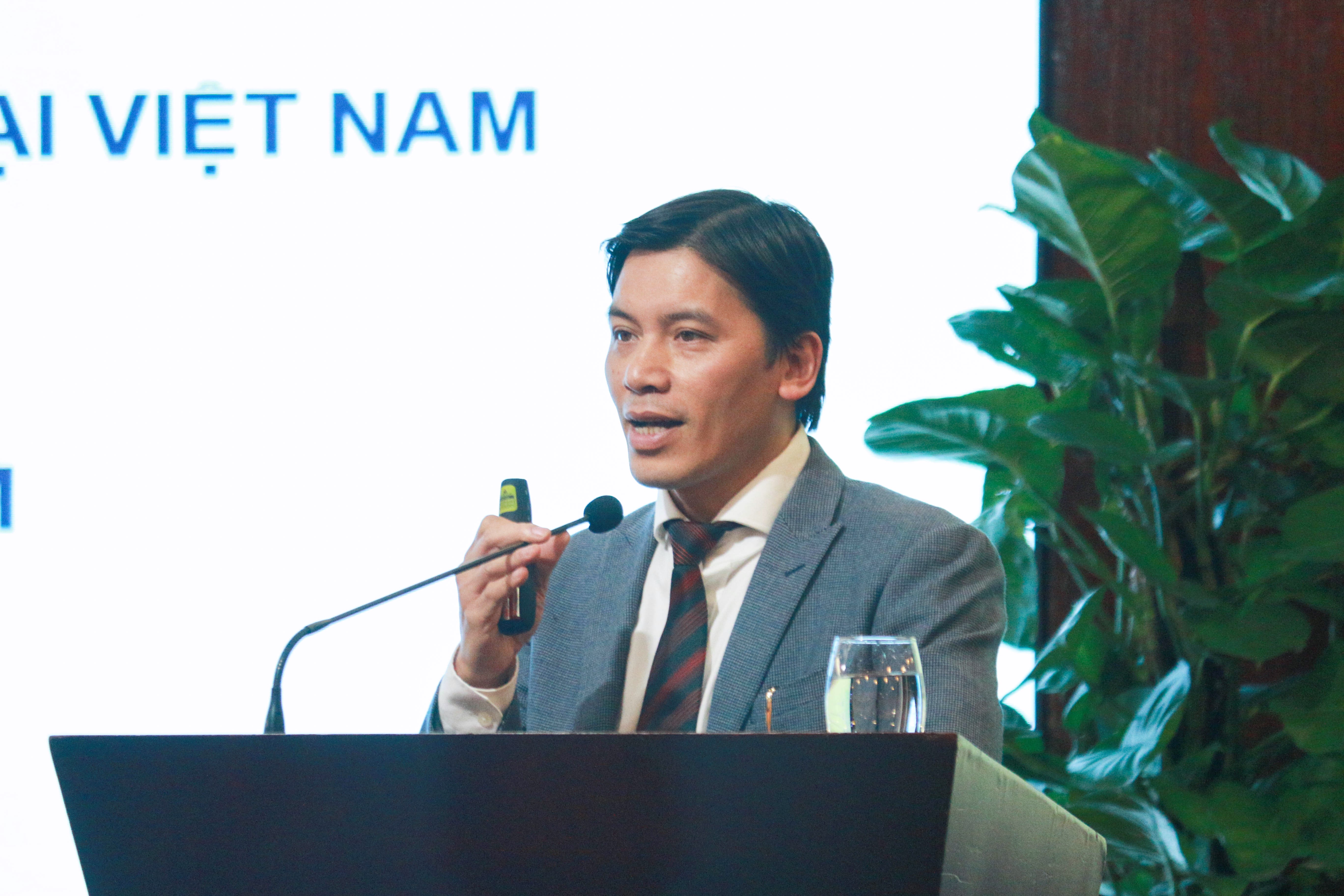
From a legal perspective, Dr. Nguyễn Trung Nam, Founding partner of EPLegal, Deputy Director of the Vietnam Mediation Center (VMC), and Arbitrator at VIAC – shared his views on “Key legal provisions on the operation and dispute resolution mechanism within the International Financial Center”. Dr. Nam noted that, under Resolution No. 222, the model of International Financial Centers in Vietnam will operate within a legal framework that is not only open but also integrates a wide range of preferential policies, particularly in taxation and foreign exchange. This is expected to stimulate the development of new financial products and services such as green finance and digital assets, thereby attracting investment capital, financial institutions, and advanced financial technologies from abroad. At the same time, the implementation of international standards of regulation and international supervision also entails heightened requirements for a corresponding dispute resolution mechanism.
Drawing comparisons with international models of financial centers, Dr. Nam observed that specialized dispute resolution mechanisms in such centers often take the form of either a dedicated court or an international arbitration body embedded within the International Financial Center. Significantly, Resolution No. 222 addresses the enhancement of arbitral authority within the International Financial Centers – which Dr. Nam considered a progressive development. Nevertheless, he emphasized that, to ensure feasibility and international integration, Vietnam must continue to develop a legal framework aligned with the common law system, clarifying rules regarding the organization, operation, and dispute resolution mechanism within the centers. This, he stressed, would constitute a critical legal foundation to strengthen investor confidence while enhancing the competitiveness and credibility of Vietnam’s financial market in the global arena.
Following the discourses by the experts, the conference proceeded with the discussion and exchange session among the participating delegates. The discussion was vibrant, with numerous exchanges and comments from the delegates.
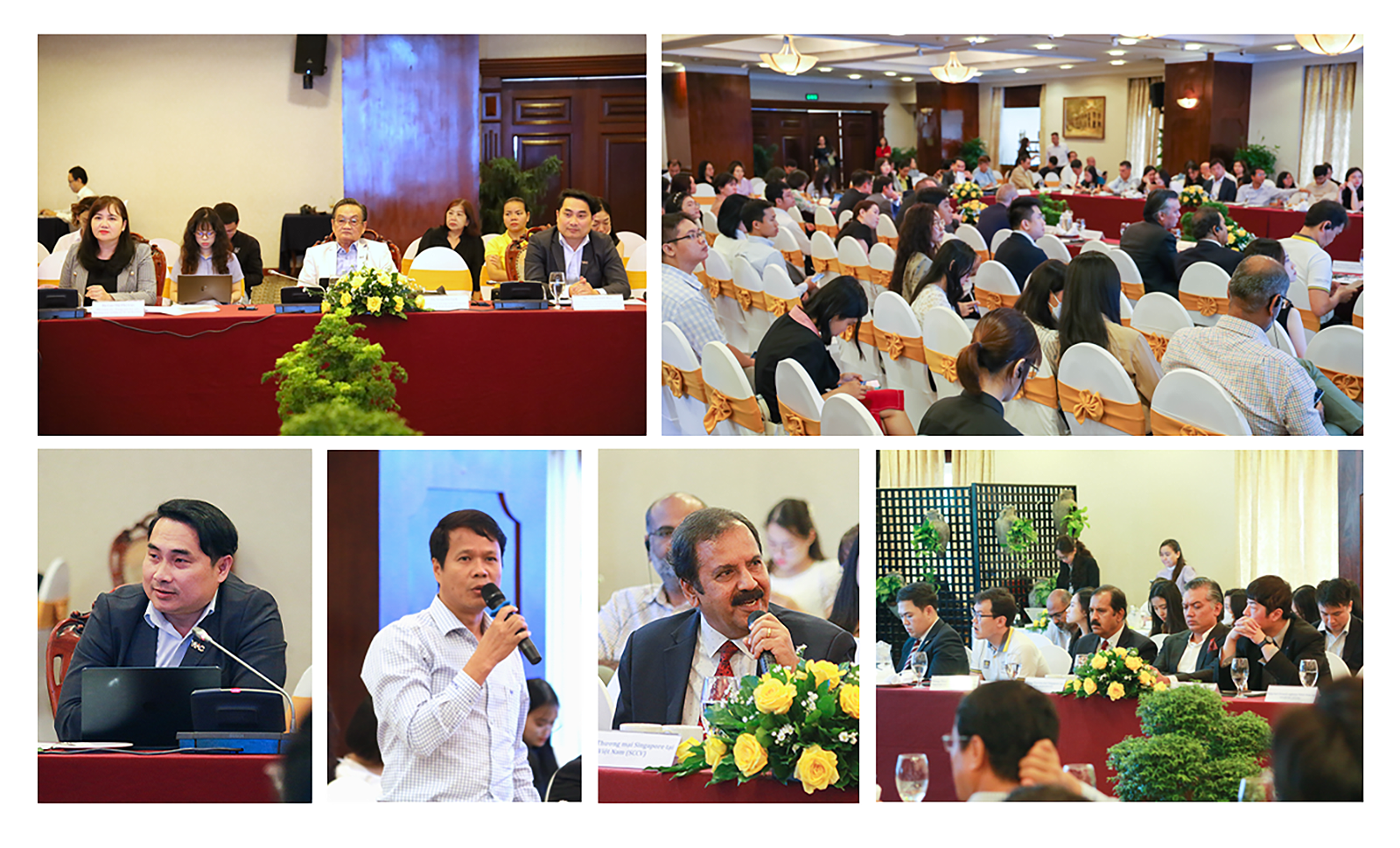
* This event served as a lead-up event to the Investment Legal Support Forum 2025 (ILS Forum 2025), which will be further carried out by VIAC and ITPC.